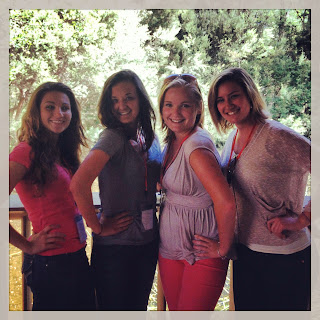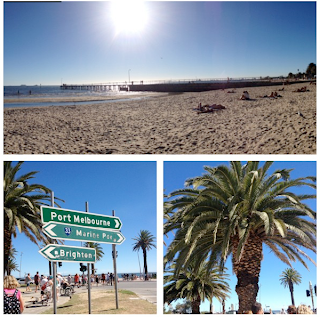One of the major concerns of anyone studying abroad in a foreign country is being able to speak the language. If you’re going to live there for five months you want to at least be able to stutter your way through conversations with a vague idea of what’s being said. That’s one of the reasons I chose Australia. They speak English, I’d thought to myself before leaving, and their accents are amazing. I’ll be fine. What I wasn’t counting on though was the abundance of slang (most of which was just terms I wasn’t familiar with) that I’d be forced to interpret upon my arrival.
The main thing here is that the way they talk is just so much more proper sounding than the way we talk in America. At first it was a bit of a struggle. Some of the people with thicker accents were a little hard to understand even when they used words I knew and why was ketchup called tomato sauce? Wasn’t that what people put on pasta? I certainly didn’t want to dip my chips (which is what they call french fries) into pasta sauce.
A little over two months later though I’m beginning to adapt. I hear people saying “I reckon it’ll be heaps of fun if you’re keen” or some version of this on an almost daily basis and, to be honest, it doesn’t even phase me anymore. I’m starting to see it as normal. I’ve even caught myself using Aussie lingo in daily conversations without trying to be ironic (apologies for when I come back home and I’m still talking like this). But as much progress as I’ve made in understanding the Aussie lingo around me, I still have a ways to go. For now (as promised) here’s some highlights.
1) I Reckon
I’ll admit when I first heard the phrase “I reckon…” I thought I’d been transported back in time. I clearly remember laughing at whoever said this to me (sorry about that by the way). I was just so shocked. I’d never in my life heard anyone say I reckon at least not in real life. The only uses of “I reckon” I’d heard involved period movies that took place in the deep south. Growing up in America I was much more used to phrases such as I think, I believe, or even I’d guess (all of which people replace with I reckon here).
2) Heaps
Here’s another one I found funny. Heaps (and sometimes loads) is used to mean a lot and let me tell you I’ve literally heard the word heaps used heaps of times this week alone. This one is used even more often than I reckon and I hear it almost daily. Come to this event on campus there’ll be heaps of free drinks, go here you’ll have heaps of fun, I can’t go out tonight I have heaps of work to do (you get the point). I’m starting to actually hear myself use heaps in my day-to-day life and I don’t mean ironically either. My friends and I used to throw this word into conversation to amuse each other and now we don’t even realise we’re doing. That being said, this is one of the words that will be coming back stateside with me.
3) Keen
Keen has many different meanings here but two of its meanings are more common than others. The first of these means to be willing to do something or go somewhere. (i.e. Are you keen to go out tonight?) If I had to choose, this is probably the one I hear most often, when talking the people in my hall. People are always keen to hang out or go into the city when there’s no work to be done for classes. The second is to be interested in someone or something (i.e. Are you keen on him?). They’re definitely keen on barbecues here judging by how many sausages we ate those first few weeks. Though less common than being keen to do something, this is also used quite frequently (and yes keen is another one of the words I’ve noticed myself picking up).
4) Cheers
At first this one was a little confusing and (somewhat embarrassingly) this was one of the ones it took me the longest to figure out. I’d hold a door open for someone or thank a cashier for my coffee only to be greeted with a smiling response of “cheers.” I just couldn’t figure it out and when I finally did my friends responded with Duh Kaitlyn (apparently I should have asked them in the beginning). Anyways, long story short, if you’re ever in Australia and someone says cheers, no you are not toasting something. They’re just saying thanks.
5) Mate
As an American one of the Australian stereotypes was that everyone goes around saying G’day mate (this is probably because of Steve Irwin). Well sorry to burst your bubble fellow Americans but no one here actually says G’day (something my Australian friends made sure I knew pretty quickly). They do however refer to each other as mate. Mate is typically used to refer to your friends but there are different tiers of “mateship” here and your mate might be a best friend (your best mate), an acquaintance, or just someone who’s name you’ve forgotten.
6) How you going?
This is probably one of the weirder ones. A lot of people here deny that they say this but all of us internationals (Loyola and non-Loyola) are hearing the same thing. “How you going?” We’re told that we’re just hearing it wrong and they actually are just saying “how are doing?” but somehow I doubt that not one of us has heard them correctly in the almost three months we’ve been here. So despite the debate from my Aussie friends this one makes the list. As far as we internationals can tell this one is just a way of asking how someone’s doing (but without saying so!) when you’re passing them and you’re both going places separate places.



















































